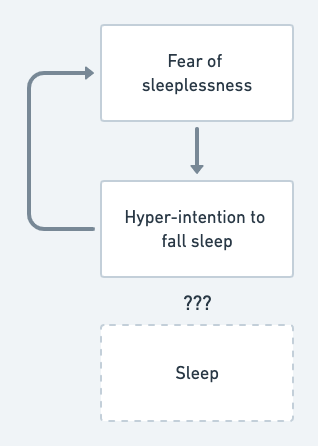Man's search for meaning
April 21, 2021It is always a unique experience to read about the experience of a man that survived a concentration camp. That is specially true if it is a story told in a biographical manner. Your mind swims in a pool of rage, hatred, confusion and some other emotions that you can’t fully comprehend. However, this book doesn’t follow the usual structure of such a story, as Viktor Frankl lets us know at the beginning of the book:
This tale is not concerned with the great horrors, which have already been described often enough (though less often believed), but with the multitude of small torments.
Don’t get me wrong, you’ll get mad about the horrendous injustices that these people had to go through, but I finished the book with a more hopeful feeling than I was expecting. Part of that hopeful feeling is due to discovering the mental mechanisms Viktor and other prisioners used in order to survive one of the most horrid experiences a human being could go through, and finding out that those mechanisms are not really strange to us.
Humor
Humor was another of the soul’s weapons in the fight for self-preservation. It is well known that humor, more than anything else in the human make-up, can afford an aloofness and an ability to rise above any situation, even if only for a few seconds.
You don’t really expect a survivor of a concentration camp to mention humor as one of the things that helped him; but he does, and shows how a very insignificant thing can cause the greatest of joys. And if a person under those conditions can use humor as a helper, I, under my very privileged conditions, sure can do the same.
Meaning of life

I liked how the author breaks life into something more digestable, and instead of looking at life as a gigantic and uncomprehensible beast, it encourages us to look at it as the summation of fulfillable tasks and the responsibility it takes to find the right answers to them.
From that, we can understand that it doesn’t make much sense to try to determine the meaning of life without iterating all the elements in that summation first (without actually living first).
One other interpretation is that the meaning of life is the meaning of a person’s life at a given moment; reminded me of the instantaneous speed definition, which makes a lot of sense.
Finally, suffering is discussed. It’s a required element in that life task set and you can fulfill it in several ways. After reading these people’s stories, your own sufferings receive a different light and perspective.
I hope I’m as worthy of my sufferings as those people were of theirs.
Logotherapy
He who has a why to live for can bear almost any how.
Here we enter the psychological part of the book, which defines the theory created by Viktor, called logotherapy. According to that, we can discover the meaning in life in three different ways:
- by creating a work or doing a deed;
- by experiencing something or encountering someone;
- by the attitude we take toward unavoidable suffering.
The main part of it is how it focuses on the future, e.g., on the meanings to be fulfilled by someone in their future; less retrospective than psychoanalysis.
Paradoxical intention
The neurotic who learns to laugh at himself may be on the way to self-management, perhaps to cure
Paradoxical intention is another good example of how humor is your friend. Grossly, paradoxical intention is making fun of yourself and doing the exact opposite of what your obession is telling you to do. A good visualization of that is what he advised his sleep disturbance patients to do. Instead of obsessively trying to fall asleep:

He advised his patients to actually try to stay awake, which eventually led to sleep.

The main point here is not feeding the obsession and fighting it by ridiculing it (applying paradoxical intention). That way, vicious circles can be cut, making paradoxical intention a good way to fight anticipatory anxiety.
Also, it’s interesting how I already applied that idea in my daily life, just didn’t know it had a fancy name. One of the most common advices you see around to get unstuck on a problem is to “step away from the computer”. And it works. It’s quite a common thing for me to have these little breakthroughs while doing the dishes, taking a shower or going for a walk.
Final notes
Although some men lost all hope, it was the incorrigible optimists who were the most irritating companions.
Make sure your optimism is in check.
There are things which must cause you to lose your reason or you have none to lose
Make sure you’re not numb. Reacting abnormally to an abnormal situation is normal behavior.
That’s it.